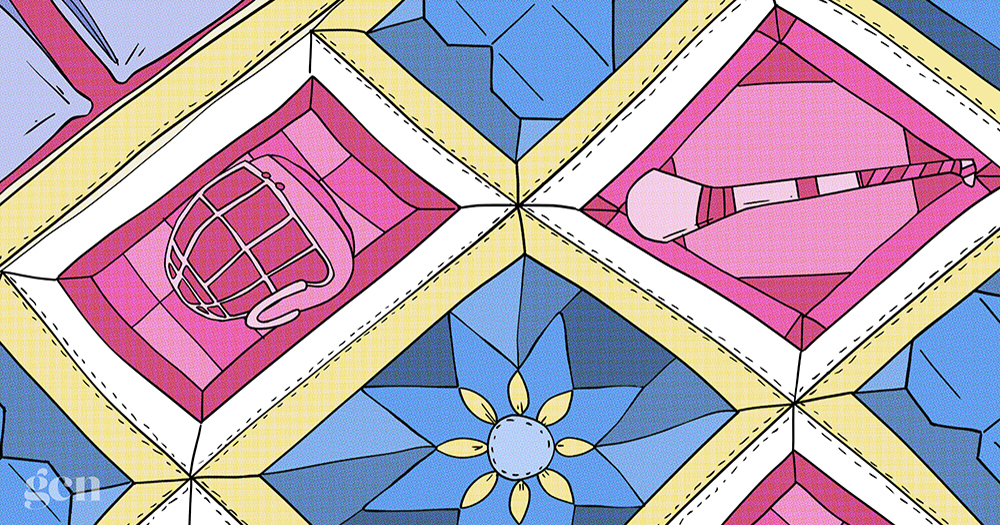GCNnewvoices in partnership with BeLonG To will platform the opinions and thoughts of LGBTQ+ young writers from across the country, speaking about issues that matter to them. Joe Drennan talks about his journey of self discovery and the effects of toxic masculinity.
Where I’m from, there are a few totems for what is deemed normal: playing sports, keeping to yourself and being straight. This is probably synonymous with every other small town in Ireland, possibly even around the world. Today, I can categorically say that I do not identify with any of these ideals. Although in the past I did, despite not wanting to. It would be fair to say that I conformed to these ideals as a safety blanket due to prevalent toxic masculinity. After time, I realised the closer I held that blanket, the more likely it was that I’d suffocate.
My mother often comically recalls a story from my fifth birthday. Naturally, she had invited all of my junior infant class on my behalf. She told me that the boys were besotted with some sort of tractor that was parked outside, while I was confused at their admiration of such a thing and was content playing with the girls inside. It probably would be an unfair and quite premature assumption of my sexuality, but there was a concern that I needed to make friends with the boys. So that’s when I started playing hurling.
As I got older, the feminine elements of my character came to the surface, such as my voice and my mostly female friends. The other boys took issue with that. I tried to brush off the ridiculing and snide remarks as friendly banter. They must’ve thought it was necessary to condemn any form of untraditional masculinity in order to affirm their dominance. I suppose everyone has their version of the blanket.
For me, it was forcing a deeper tone while speaking, holding my tongue and distancing myself from my female friends. For them, it was asserting their dominance by attacking anything or anyone that defied the traditional masculine archetype.
This toxic masculinity has ingrained anti-gay diction into our everyday language. Being on the field wasn’t the first time I had heard these words used against me. Though when I did, I understood that I couldn’t stop playing, in fear of being excluded and ridiculed. Or worse, be found out for my sexuality. Soon, my love for the game spiralled into a desperate upkeep of this masculine archetype. Whenever I succeeded on the field, it was only with a relief that I felt that I could thrive in something deemed masculine, rather than something that I enjoyed.
This facade didn’t stand the test of time, and although I cannot pinpoint a certain time, I decided to quit. Not for my dislike of the sport, but for the emotional exhaustion of my spurious efforts.
As I reflect now, even though I felt so isolated, I know I can’t hold it against any of my teammates. Toxic masculinity had stunted their thought processes as much as it pushed someone like me to the periphery. The constant pressure young males feel to be a ‘man’ affects us in different ways. Everyone has their own version of the blanket.
© 2020 GCN (Gay Community News). All rights reserved.
Support GCN
GCN is a free, vital resource for Ireland’s LGBTQ+ community since 1988.
GCN is a trading name of National LGBT Federation CLG, a registered charity - Charity Number: 20034580.
GCN relies on the generous support of the community and allies to sustain the crucial work that we do. Producing GCN is costly, and, in an industry which has been hugely impacted by rising costs, we need your support to help sustain and grow this vital resource.
Supporting GCN for as little as €1.99 per month will help us continue our work as Ireland’s free, independent LGBTQ+ media.
